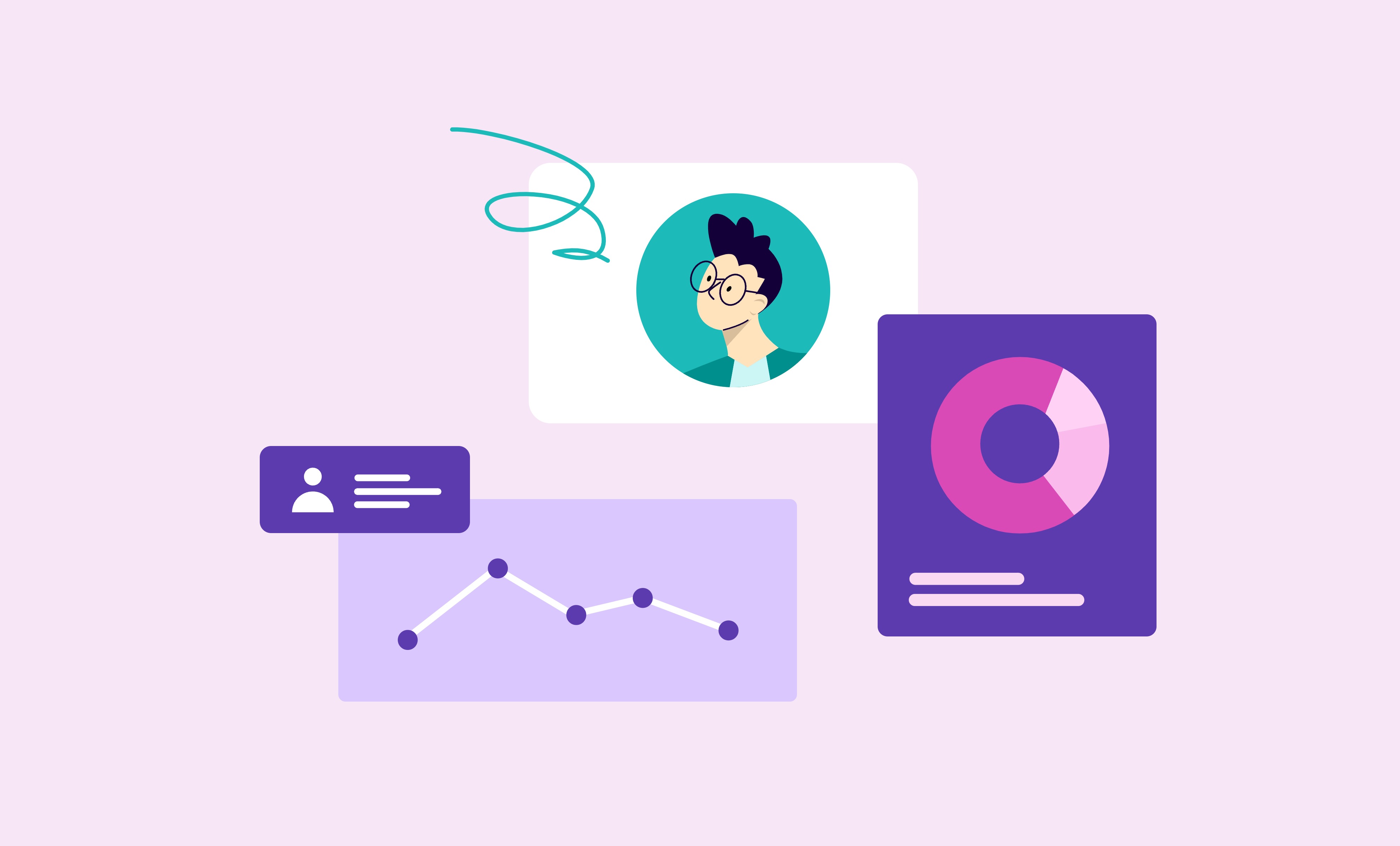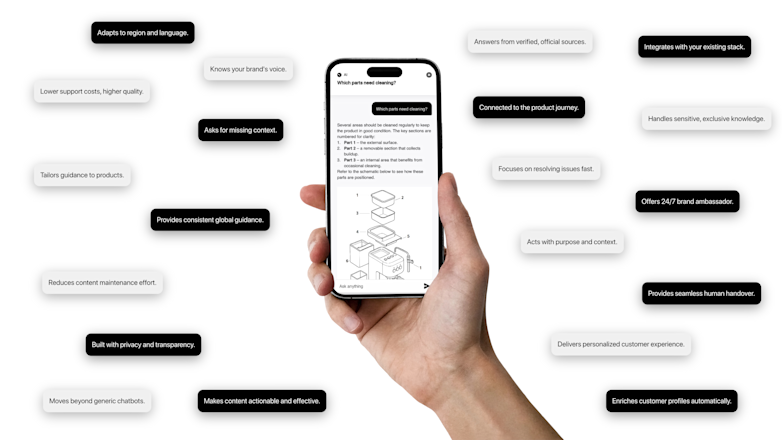
The most valuable knowledge you can acquire is going to come from the customer you have. Therefore, your customers are an essential source of information that will empower you to optimise the performance of your business in a strategic and smart way, if collected accurately and utilised effectively.
Data is translated into knowledge, will help you understand your performance, and consequently provide clarity to improve your strategic processes where necessary.
Understanding your customers, both generically, as e.i. buyer persona, and specifically with deep contextual precision, will, without doubt, uncover insights that will drive your business safely and confidently into the future.
On the contrary, not seeking insight through data will potentially contribute to faulty decision-making and thereby the risk of business opportunity implosion. A high gain method to always prioritise data is to assess the outcome of what the cost would be if data is not tracked.
What exactly is data collection?
The process of gathering information or data from various sources for the purpose of analysis or decision-making is referred to as data collection. This process entails systematically collecting and organising data points, which can be in the form of numbers, text, images, or any other relevant format.
There are three major types of data collection:
First-party data
Data obtained directly from consumers via channels such as websites, social media, apps, and surveys. Because of its accuracy and exclusive ownership by businesses, it is regarded as highly reliable and valuable. This data aids in market analysis, customer needs, and personalised consumer experiences.
Nowadays, most CG companies use direct-to-consumer (D2C) channels, such as social media, to interact and even sell directly to customers, thereby collecting valuable data on them.
Second-party data
Information gathered by trusted partners and shared or sold as part of a collaborative arrangement. It is reliable, just like first-party data, and aids in the development of insights and predictive models.
Third-party data
Information obtained from outside sources with no direct consumer-business relationship. This information is frequently aggregated and sold for marketing purposes. While it broadens audience reach and targeting options, it should be used with caution due to potential reliability and privacy law compliance issues.
10 Reasons why data can help your business
We have compiled a list of ten reasons why data can help your business through customer data acquisition:
1. Make informed decisions
Data is knowledge. Good high-quality customer data provides indisputable evidence whereas relying only on assumptions might lead to wasted resources. Get to know your customers, find out who they are and what they need, and trust in such data when making important business decisions.
The more data you have, the better position you’ll be in to make reasonable decisions and take advantage of new opportunities. Being backed up by good data will also give you the justification, evidence, and confidence when explaining the reasoning behind your decisions.
2. Measure customer loyalty
If you want to become one of the most recognised brands and experience long-lasting business success, customer loyalty is what really gets you there and makes you stand out. It increases profits, improves sales success, and allows for sustainable growth.
The best way to build an effective and loyal customer base is to segment your customers by gathering and analyzing their data.
3. Recognise habitual behavior through customer behavior analysis
By establishing a well-structured data-driven customer base, you can analyse how the personas interact with your company. Performing a customer behavior analysis is becoming increasingly important due to a growing need for highly personalized content that is unique to each customer.
By having collected enough customer data, you can identify the most ideal customer characteristics and by targeting them, your business can attract brand-loyal customers before your competitors do.
4. Improve your product by gaining customer feedback
The customers who have already bought something from you are the best persons to approach when you try to gather feedback insights concerning your products and services.
By gathering their data, you can get their insights and priceless feedback. You can ask them how they liked the product, their recommendations, and ideas for improvement. By establishing such an interactive relationship you will always be able to target the specific problem and work on its improvement in no time.
5. Drive future marketing strategy
The information you collect is the ultimate marketing tool that allows you to profile your customers. You can build your marketing strategy around the data you gather as now you know your audience.
Furthermore, analyzing trends in a number of new registrations, customers, or conversations during specific timeframes can show you which of your products are in demand, and which ones are losing significance.
6. Make prospects’ targeting easy and time-efficient
The more information you can collect, the more you can use the information to determine if someone fits into your “buyer persona” and if and when they are predicted to make a purchase. The more details you can gather, the more you can focus on the best leads to target.
7. Improve your customer experience
To strengthen the connections between you and your customers, you absolutely have to understand the experiences they are having and discover how to optimize them. It is the most efficient way to get an understanding of how your company is doing concerning customer experience.
After gathering a sufficient amount of data about who your customers are and how they experience your brand, you can start to analyze the data, create customer profiles, and map customer journeys. It can tell you in what areas you are doing well and where you need to improve.
The more willing you are to listen to your customers and use their critiques to your advantage, the faster your company can grow in value.
8. Reduce the risk of business opportunity failure
One key advantage of data collection is that it increases efficiency and at the same time eliminates any doubt and insecurities. Proper customer data collection and analysis means that you’ll always to able to put your scarce resources where they are needed most.
Understanding what area currently needs to be prioritized is essential in helping you locate key insights and identify structural vulnerabilities. Then you can always stay one step ahead of your competitors and make sure no opportunities are being missed.
9. Drive innovation
Data represents an invaluable opportunity for you to innovate. As the current trends are constantly evolving, only forward-thinking brands can survive. You can fuel your growth strategy with actionable insights by collecting solid customer data, finding linkages and hidden patterns. This will lead you down the path of long-term business success.
10. Develop systematic brand-to-customer communication
To build strong, long-lasting relationships with your customers, you need to develop effective brand-to-customer communication. This means that you need to be able to communicate easily and effectively whenever your customers require you to do so.
By understanding your customers first, i.e. by analysing their characteristics through data collection, you can create the foundation for a successful lasting relationship.
Learn how to collect valuable insights on your customers to sell even more.

How to Turn a New Obligation into a Growth with Layerise

A trusted, brand-safe AI assistant that knows your products, your customers and your content.






